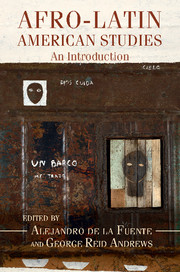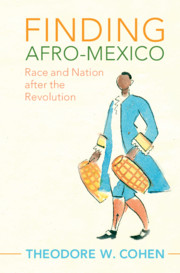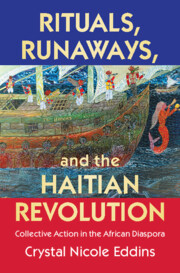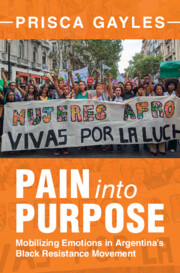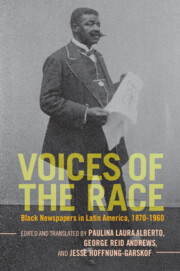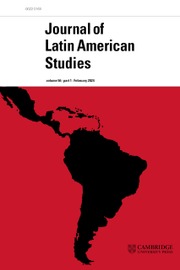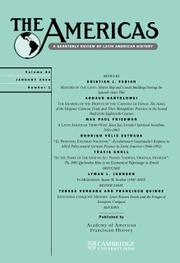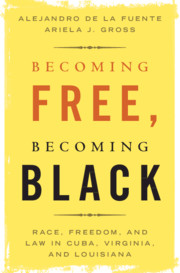Afro-Latin American Studies
Alejandro de la Fuente and George Reid Andrews offer the first systematic, book-length survey of humanities and social science scholarship on the exciting field of Afro-Latin American studies. Organized by topic, these essays synthesize and present the current state of knowledge on a broad variety of topics, including Afro-Latin American music, religions, literature, art history, political thought, social movements, legal history, environmental history, and ideologies of racial inclusion. This volume connects the region's long history of slavery to the major political, social, cultural, and economic developments of the last two centuries. Written by leading scholars in each of those topics, the volume provides an introduction to the field of Afro-Latin American studies that is not available from any other source and reflects the disciplinary and thematic richness of this emerging field.
- Presents systematic and synthetic overviews of recent scholarship on topics of major importance in the field of Afro-Latin American studies, for example Afro-Latin American religions, Afro-Latin American political movements, and Afro-Latin American music
- Covers a broad range of topics, embracing most of the humanities and social sciences
- Serves as the authoritative introduction for Afro-Latin American history, covering the period from 1500 to the present
Reviews & endorsements
'This collection marks the coming of age of the new multi-disciplinary field of Afro-Latin American Studies, a field centered on the histories and cultures of people of African descent throughout the Caribbean and South and Central America. We sometimes forget that almost two-thirds of all of the enslaved Africans arriving in the Americas went to the former colonies of Spain and Portugal, where they shaped local cultures in lasting and meaningful ways. With penetrating contributions from leading scholars of slavery and race in the Americas, this volume is a delight to read and charts new agendas for future research in this exciting field.' Henry Louis Gates, Jr, Harvard University, Massachusetts
'This ground-breaking volume is a rich must-read text for academics, practitioners, and activists. An interdisciplinary approach brings together some of the most prominent scholars, from a wide range of fields, to analyze the complex role of African descendants in the Americas. Chapters masterfully investigate the arrival of African descendants and their social movements, the historical roots of inequality, the struggle for political identity, and the role of gender. The text places African descendants at the center of our understanding of Latin America - the significance of this analysis demonstrates why this field is worthy of deep academic exploration.' Judith Morrison, Inter-American Development Bank
'Distinguished historians Alejandro de la Fuente and George Reid Andrews have compiled a first-rate volume with essays by many of the leading thinkers of race in Latin America. Afro-Latin American Studies reviews the literature and offers cutting-edge work on diverse areas including slavery, contemporary politics and social movements, art and literature. Anyone who wishes to understand the rapidly growing field of Afro-Latin American Studies, or Afro-American studies in the continental sense, should read this book.' Edward Telles, University of California, Santa Barbara
'The political, cultural and social landscape of Afro-Latin America has undergone significant transformation on the cusp of the twentieth and twenty-first centuries. de la Fuente and Andrew's handbook is a timely, insightful collection of essays by some of the most important specialists of the region, tracking the proliferation and transformation of Afro-Latin political mobilization and identification, its variation and diversity, while situating these contemporary transformations against the backdrop of racial slavery and exceptionalist credos of racial democracy found throughout the region.' Michael G. Hanchard, University of Pennsylvania
Product details
June 2018Hardback
9781107177628
660 pages
235 × 160 × 42 mm
1.03kg
Available
Table of Contents
- 1. Afro-Latin American studies: an introduction Alejandro de la Fuente and George Reid Andrews
- Part I. Inequalities:
- 2. The slave trade to Latin America: a historiographical assessment Roquinaldo Ferreira and Tatiana Seijas
- 3. Inequality: race, class, gender George Reid Andrews
- 4. Afro-indigenous interactions, relations, and comparisons Peter Wade
- 5. Law, silence, and racialized inequalities in the history of Afro-Brazil Brodwyn Fischer, Keila Grinberg and Hebe Mattos
- Part II. Politics:
- 6. Currents in Afro-Latin American political and social thought Frank Guridy and Juliet Hooker
- 7. Rethinking black mobilization in Latin America Tianna Paschel
- 8. 'Racial democracy' and racial inclusion: hemispheric histories Paulina Alberto and Jesse Hoffnung-Garskof
- Part III. Culture:
- 9. Literary liberties: the authority of Afrodescendant authors Doris Sommer
- 10. Afro-Latin American art Alejandro de la Fuente
- 11. A century and a half of scholarship on Afro-Latin American music Robin Moore
- 12. Afro-Latin American religions Stephan Palmié and Paul Christopher Johnson
- 13. Environment, space and place: cultural geographies of colonial Afro-Latin America Karl Offen
- Part IV. Transnational Spaces:
- 14. Transnational frames of Afro-Latin experience: evolving spaces and means of connection, 1600–2000 Lara Putnam
- 15. Afro-Latinos: speaking through silences and rethinking the geographies of blackness Jennifer A. Jones.

